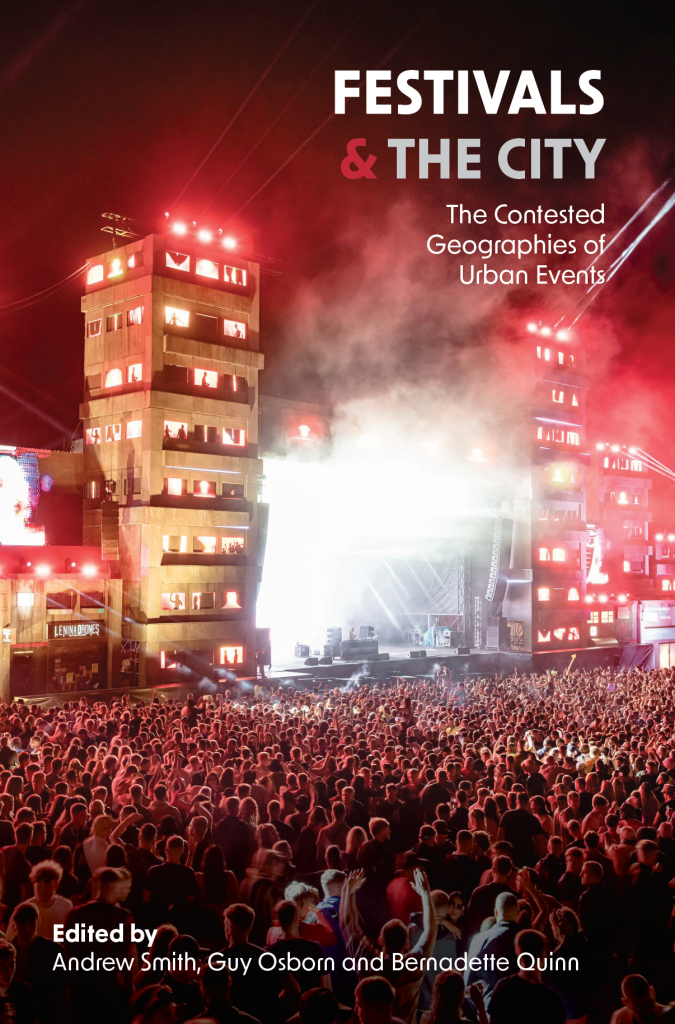Festivals & The City, edited by Andrew Smith, Guy Osborn and Bernadette Quinn, is an open access UWP title that explores how festivals and events affect urban places and public spaces, and focuses particularly on their role in fostering inclusion. Its 15 chapters are drawn from a range of different European cities, including Venice, Edinburgh, London, Manchester, Rotterdam and Barcelona. They explore a variety of events and festivals, including those focused on heritage, music and craft beer.
Here editor Guy Osborn, Professor in the Westminster Law School, Co-Director of the Centre for Law, Society and Popular Culture and editor of the Entertainment and Sports Law Journal, gives an insight into his research interest and where it’s taking him next.

Q: How did you first become interested in the subject of urban festival spaces?
I guess my interest in law and popular culture, and particularly music and sport, was my way in. Also I had worked with Andrew Smith on a project relating to how the Olympics had used parks as fan zones, particularly Hyde Park, so how public spaces were used for private events was an issue of interest to me.
Q: Do you have a favourite urban festival? Where and why is it special to you?
The Great Escape in Brighton. I have been going to this as a fan/punter for many years. It’s special for all sorts of reasons, not least because it’s an annual event where I meet up with pals who I first met at university many moons ago. But it also allows me to see lots of up and coming bands.
Q: Does your research indicate an increase in the use of festivilised urban spaces post-pandemic compared with pre-pandemic?
That’s an interesting question – I’m not sure we know enough yet to say for certain. Our research was very much centred on a year in the life of one park, Finsbury Park, and it just so happened that the pandemic interrupted our field work! Certainly Finsbury Park has continued to have events, Pulp and Arctic Monkeys, for example recently, and local groups have ben divided on this as before. What is also apparent is that local authorities are strapped for cash and are trying to monetise their assets where they can.
Q: Do you think public urban areas can be genuinely plural spaces in the global north?
Yes, that’s what they are essentially for, or what they should be for. Parks are really important.
Q: What is next for you in terms of your research in this area?
One of my next big projects that is somewhat related is examining event tickets – the means via which access is granted to events such as a festival. More closely related to the book project, Andrew and I have talked of doing a sort of social and cultural history of music festivals in London – we just need some funding or someone to commission us!
You can download and read Festivals & The City for free here
